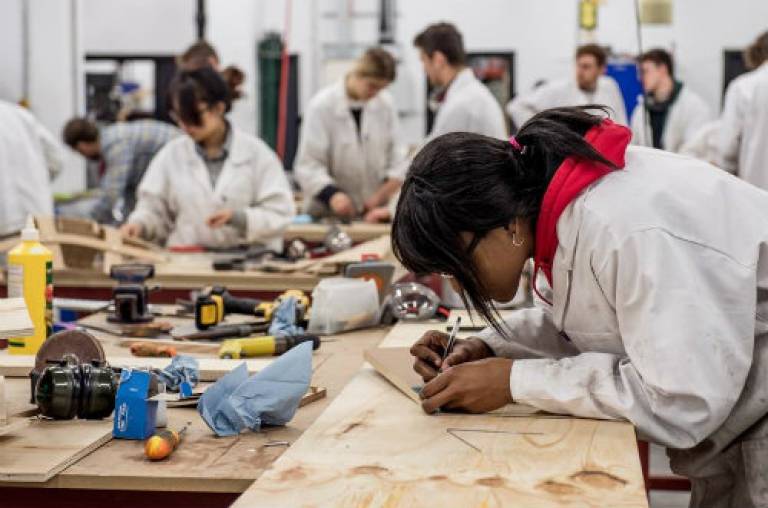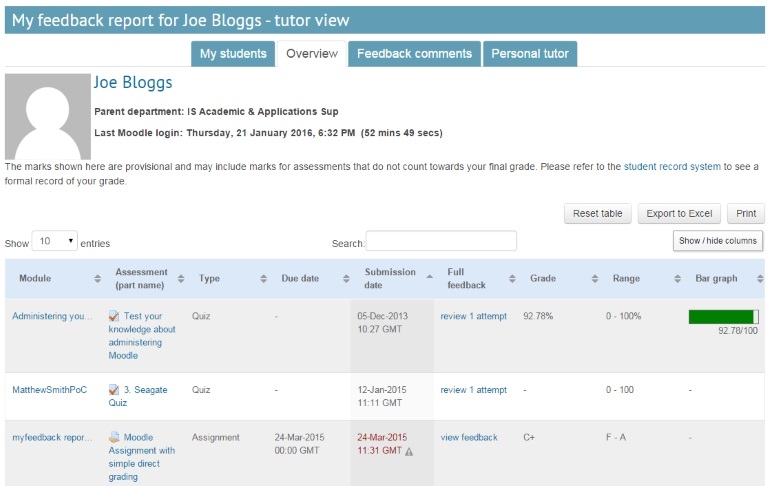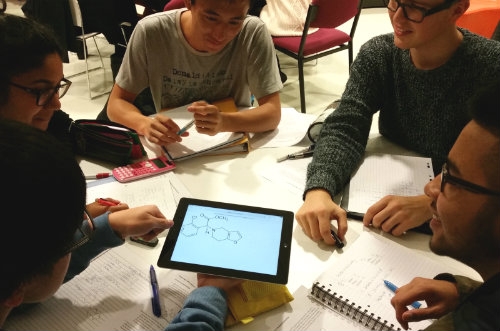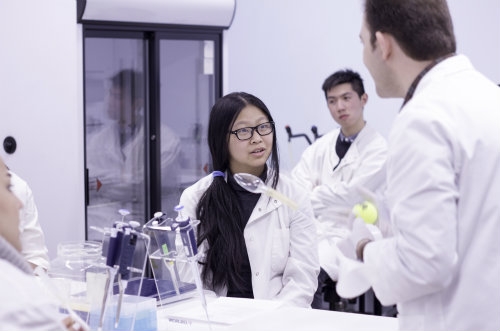Transforming the student experience: the best ideas from 2015/16
5 July 2016

At UCL, we sometimes underplay just how innovative our teaching is. To mark an end to this academic year, here are some of the most successful and creative ways colleagues from across the university have broadened students' knowledge over the last 12 months.
Some, such as the meet the researcher programme, are excellent examples of the UCL Connected Curriculum. This is our model which defines the relationship between students' learning and their participation in research and describes the connections to be made between disciplines, years of study, and staff and students. Other examples show, in a different way, what makes teaching at UCL distinctive, whether it's our pioneering work on object-based learning or the educational tools we're developing.
Professor Anthony Smith, Vice-Provost (Education & Student Affairs), said: “We want to give our students an outstanding experience and these examples show that, across the university, so many of our staff are developing ideas and tools that do just that. Teaching at UCL has a higher profile than ever before.”
Identifying mystery specimens
Each year, a UCL bioscience student is given a mystery object from the Grant Museum and told nothing about it. It might be a skull or one scute of a turtle’s shell. The students are asked to identify the specimen as closely as possible to species level and use research and the wider collection at the museum to write, in the form of a journal article, about its taxonomic group, its evolutionary history and what its interesting features tell us about its life. This year, students also gave a 10-minute presentation on their specimen to visitors at the museum and wrote the object's museum label.
Read the blog

Feedback and grades all on one screen
A new feedback tool, developed by UCL’s Digital Education team, allows students for the first time to see many of their marks and feedback on one page. At the moment, students can only see their feedback when they click on individual assessments within courses on Moodle. The tool, which worked well when engineering sciences students tested it this year, gives a bar graph of a student’s performance over time and provides information about their grades and the marking scale for each assessment. The tool is expected to be released to all staff and students at UCL for the new 2016/17 academic year. Dr Fiona Strawbridge, Head of Digital Education at UCL, says that while other institutions are developing similar tools, UCL is "at the forefront" in this development work in Moodle.
Read the case study

iPad apps help prepare Pharmacy students for the workplace
Students are getting more from their studies in the UCL School of Pharmacy thanks to an iPad lending scheme. The School now allows students to borrow one of their 95 iPads – five of which were donated by alumni. All the iPads come with virtual models of organs, a pharmaceutical reference book and specialist pharmaceutical apps. The scheme gives students a sense of what it is like to work as a professional pharmacist, says Adam Phillips, an E-learning Support Officer. “Most likely they will be expected to use the latest devices, such as tablets, in the pharmacy industry. ... pharmacists doing rounds on hospital wards will be likely to use them instead of paper,” he says.
Read the case study

Meet the researcher
Across UCL, some departments are giving first-year undergraduates the chance to meet and interview some of their faculty’s top researchers. The students gain valuable interviewing skills, but also an insight into UCL’s research culture. In the Division of Psychology and Language Science, students spend half an hour interviewing a researcher and then give a presentation on what they have found out about them and their research. Stefanie Anyadi, Teaching and Learning Team Manager in UCL Psychology and Language Sciences, says the initiative has meant new students are “made to feel part of the linguistics community right from the start”. “The researchers who were interviewed reported how rewarding it’s been for them to talk to such an enthusiastic audience, so it can be quite transformational in terms or relations between students as well as between students and staff.”
Read the case study

Do you or someone you know in your department or faculty teach in an innovative way?
Make sure colleagues from across the university can learn from them by emailing teaching.learning@ucl.ac.uk.
Our Teaching and Learning Portal features teaching practice from across UCL, as well as education news and features. Subscribe to our newsletter here.
 Close
Close

